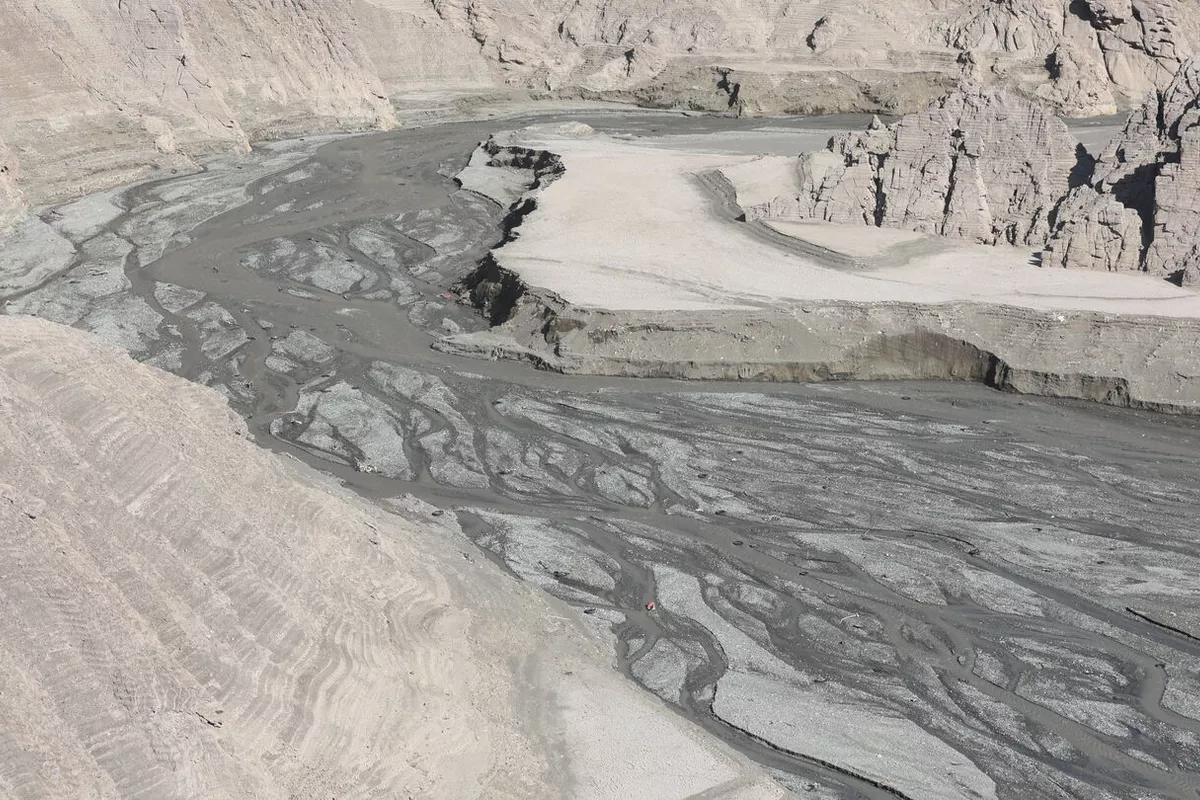
Majid Asgaripour/WANA (West Asia News Agency) via REUTERS
Iran is facing its most severe water crisis in decades, with officials warning that Tehran, home to over 10 million people, could become uninhabitable if the ongoing drought persists.
President Masoud Pezeshkian has cautioned that if rainfall does not arrive by December, the government must start rationing water in Tehran, The Caspian Post reports citing Reuters.
"Even if we do ration and it still does not rain, then we will have no water at all. They (citizens) have to evacuate Tehran," Pezeshkian said on November 6.The stakes are high for Iran's clerical rulers. In 2021, water shortages sparked violent protests in the southern Khuzestan province. Sporadic protests also broke out in 2018, with farmers in particular accusing the government of water mismanagement.
The water crisis in Iran after a scorching hot summer is not solely the result of low rainfall.
Decades of mismanagement, including overbuilding of dams, illegal well drilling, and inefficient agricultural practices, have depleted reserves, dozens of critics and water experts have told state media in the past days as the crisis dominates the airwaves with panel discussions and debates.
Pezeshkian's government has blamed the crisis on various factors such as the "policies of past governments, climate change and over-consumption".
While there has been no sign of protests yet this time over the water crisis, Iranians are already struggling under the weight of a crippled economy, chiefly because of sanctions linked to the country’s disputed nuclear programme.
Coping with persistent water shortages strains families and communities even further, intensifying the potential for unrest, when the clerical establishment is already facing international pressure over its nuclear ambitions. Iran denies seeking nuclear weapons.
Across Iran, from the capital’s high-rise apartments to cities and small towns, the water crisis is taking hold.
When the taps went dry in her eastern Tehran apartment last week, Mahnaz had no warning and no backup.
"It was around 10 p.m., and the water didn’t come back until 6 a.m.,” she said. With no pump or storage, she and her two children were forced to wait, brushing teeth and washing hands with bottled water.
Iran’s National Water and Wastewater Company has dismissed reports of formal rationing in Tehran, but confirmed that nightly water pressure reductions were being applied in Tehran and could drop to zero in some districts, state media reported.
Pezeshkian also warned against over-consumption in July. The water authorities said at the time 70% of Tehran residents consumed more than the standard 130 litres a day.
Share on social media